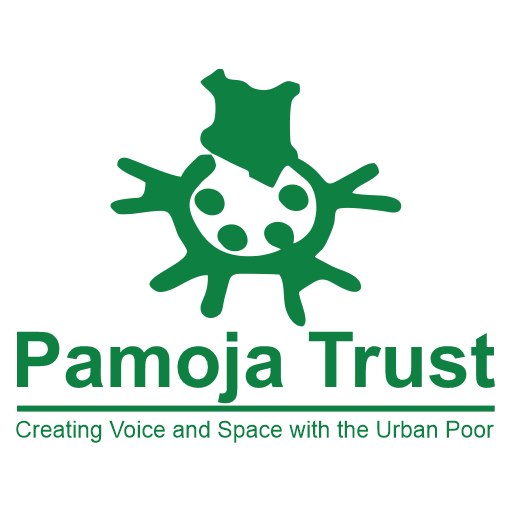Across the globe, businesses are under increasing scrutiny for their impact on human rights. Governments, Civil society and consumers alike are demanding accountability and ethical business practices, pushing businesses to move beyond profit driven models and integrate sustainable , rights based approaches into their operations.
Across Kenya’s urban settlements, questions of justice, accountability, and dignity are inseparable from development. As investment flows into infrastructure, housing and services, the responsibility of businesses and public actors to respect human rights has never been greater.
At Pamoja Trust, we see Human Rights Due Diligence (HRDD) as a vital tool for ensuring that the voices of vulnerable and marginalized communities are not only heard but acted upon.
What is Human Rights Due Diligence?
Human Rights Due Diligence (HRDD) is the process businesses and institutions use to identify, prevent, mitigate, and account for how they address their adverse impacts on people. It is outlined in the UN Guiding Principles on Business and Human Rights and requires organizations to:
- Assess risks and impacts – understanding how operations, products, or services may harm people.
- Integrate and act – embedding findings into decisions and policies.
- Track effectiveness – measuring whether actions truly reduce harm.
- Communicate – being transparent about risks, actions, and remedies.
Importantly, HRDD is not a one-off activity. Risks shift as contexts change. For example, a housing project may look different once land disputes, governance weaknesses, or the exclusion of informal settlers are factored in.
Why HRDD Matters for Communities
Human rights due diligence is about people, not processes. It requires listening to those most affected residents, workers, and communities who live with the consequences of business and state decisions. This is particularly urgent for urban poor communities, who often face systemic exclusion, insecure tenure, and weak access to justice.
When done well, HRDD can:
- Prevent forced evictions and displacement.
- Ensure fair labor practices in construction and supply chains.
- Protect women, youth, and vulnerable groups from exploitation and violence.
- Build trust between communities, businesses, and government.
Challenges in Kenya
Kenya has made commitments under the National Action Plan on Business and Human Rights (NAP-BHR), but gaps remain in implementation. Many enterprises view human rights as a compliance burden rather than a shared responsibility. Others rely heavily on external consultants, missing the opportunity to embed human rights into their core values and operations.
For communities, the absence of transparent engagement and grievance mechanisms means that violations such as unsafe resettlement, unfair compensation, or environmental degradation are too often repeated.
Cultivating Justice: Enhancing Responsible Business Conduct in Kenya’s Agribusiness Sector
As part of this commitment, Pamoja Trust is implementing the Cultivating Justice project to strengthen responsible business conduct in Kenya’s agribusiness sector. This initiative supports and builds the capacity of civil society and grassroots organizations to document and monitor business and human rights violations in agribusiness.
The project aims to:
- Promote the rights of farmers.
- Prevent corporate human rights violations.
- Strengthen access to remedy for affected communities.
It is firmly anchored in the United Nations Guiding Principles on Business and Human Rights (UNGPs) and their three-pillar framework:
- Pillar I – The state duty to protect human rights.
- Pillar II – The corporate responsibility to respect human rights.
- Pillar III – Access to remedy.
Through Cultivating Justice, we are advancing a vision of an agribusiness sector in Kenya that is both profitable and rights-respecting where farmers, workers, and communities are protected from harm and empowered to thrive.
A Call to Action
Kenya’s pathway to inclusive development requires more than infrastructure, it requires a commitment to human dignity. Businesses, county governments, and development partners must embed Human Rights Due Diligence into every stage of their work.
Pamoja Trust will continue to champion HRDD as part of our broader mission to create voice and space for the vulnerable in shaping Kenya’s future.


